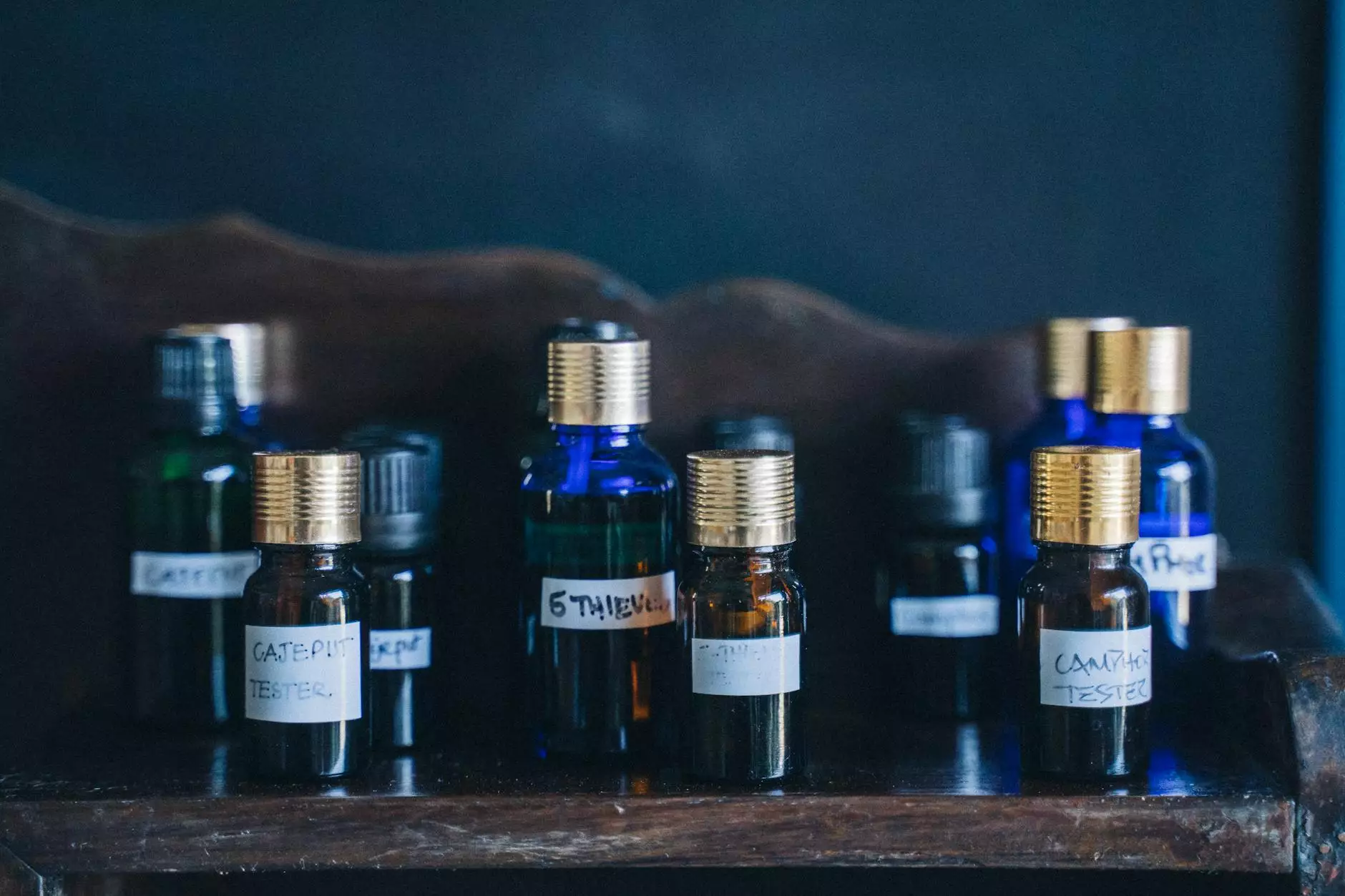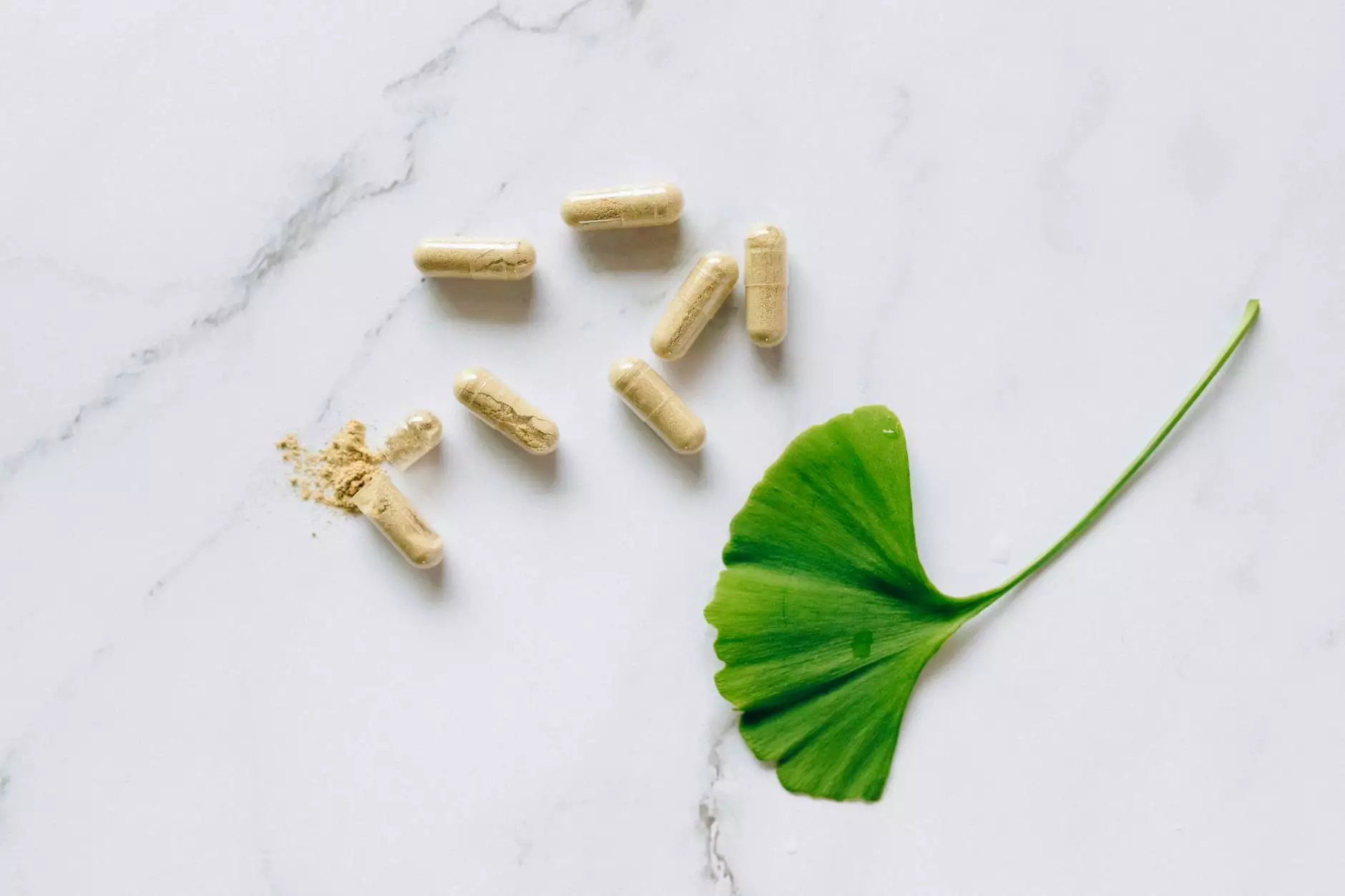Aromatherapy & Essential Oils in Chinese Medicine

Welcome to Redding Integrative Medicine, your trusted destination for alternative and natural medicine in the health industry. In this comprehensive guide, we will explore the fascinating world of aromatherapy and essential oils in the context of Chinese medicine.
Understanding Aromatherapy
Aromatherapy is a holistic healing practice that utilizes the therapeutic properties of essential oils derived from plants. These oils are highly concentrated essences that capture the natural compounds and fragrance of various botanical sources. Chinese medicine, with its rich history and emphasis on the body's energy flow or "Qi," has found ways to integrate aromatherapy into its healing practices.
The Role of Essential Oils in Chinese Medicine
Essential oils are widely used in Chinese medicine to promote balance and harmonize the body's energy systems. Each oil possesses unique properties that target specific areas of imbalance. For example, lavender essential oil is known for its calming effects, helping to reduce stress and ease anxiety. On the other hand, peppermint essential oil is often used to invigorate the mind and alleviate symptoms of digestive disorders.
Application Methods
Chinese medicine practitioners employ various application methods to harness the benefits of essential oils. Some common techniques include:
- Aromatherapy Diffusion: In this method, essential oils are diffused into the air using a diffuser or a vaporizer. Inhalation of the aromatic molecules facilitates their absorption into the bloodstream, which can lead to emotional and physical well-being.
- Topical Application: Essential oils can be applied directly to the skin, usually in diluted forms, through massage or acupressure techniques. The oils are believed to penetrate the body's meridians, stimulating the flow of Qi and promoting healing.
- Internal Consumption: Some essential oils, when of high quality and approved for internal use, can be consumed orally. However, it is crucial to consult with a trained professional before attempting internal usage, as essential oils are potent substances and proper dosage is essential.
Benefits of Aromatherapy in Chinese Medicine
Integrating aromatherapy and essential oils into Chinese medicine practices can offer various health benefits:
1. Stress Relief
The calming and soothing properties of specific essential oils help reduce stress, anxiety, and promote relaxation. Aromatherapy can be an excellent complementary approach to manage the daily stressors of modern life.
2. Emotional Well-being
Essential oils can directly influence our emotions by triggering the limbic system in our brains. By incorporating essential oils into Chinese medicine treatments, practitioners aim to regulate emotions, improve mood, and enhance overall emotional well-being.
3. Physical Healing
Essential oils possess various therapeutic properties beneficial for physical ailments. From reducing inflammation to promoting better digestion, these oils can be incorporated into treatment plans to support the body's natural healing processes.
4. Energy Restoration
Aromatherapy aims to balance the body's energy systems, promoting the free flow of Qi and restoring vitality. Essential oils can be used to invigorate or calm specific energy pathways to bring balance and harmony to the body.
Conclusion
In conclusion, the integration of aromatherapy and essential oils into Chinese medicine practices can offer a holistic approach to promoting health and well-being. At Redding Integrative Medicine, we recognize the significant benefits these ancient practices can have on your overall wellness. Experience the transformative power of aromatherapy and essential oils, and embark on a journey towards balance and harmony.










